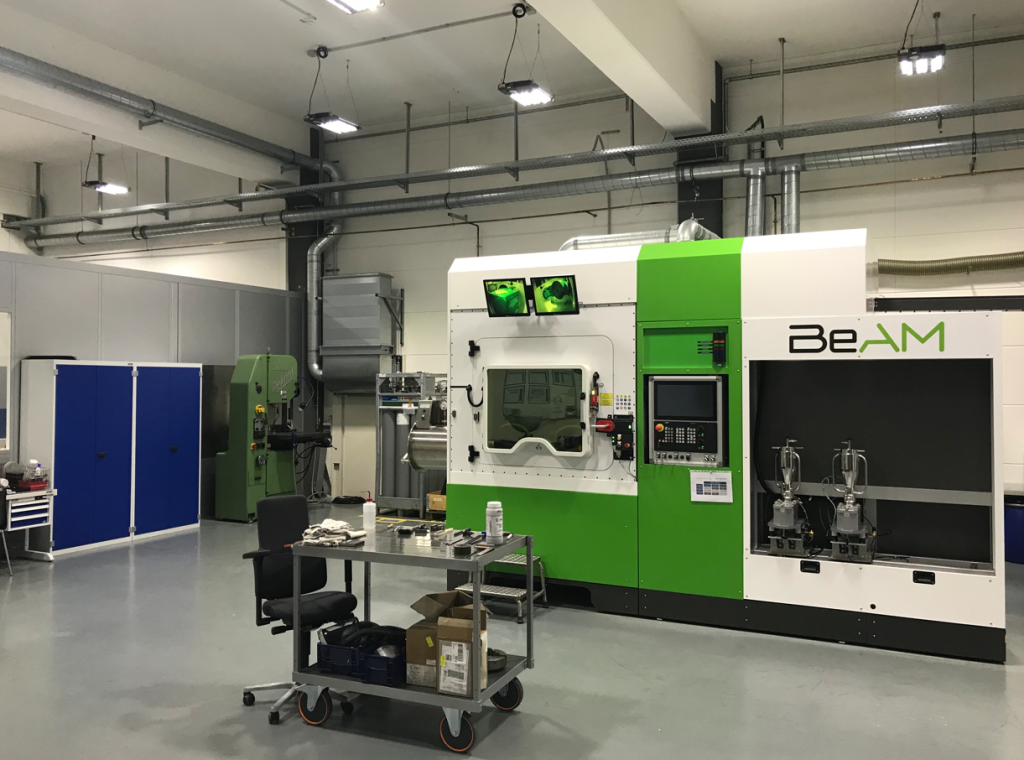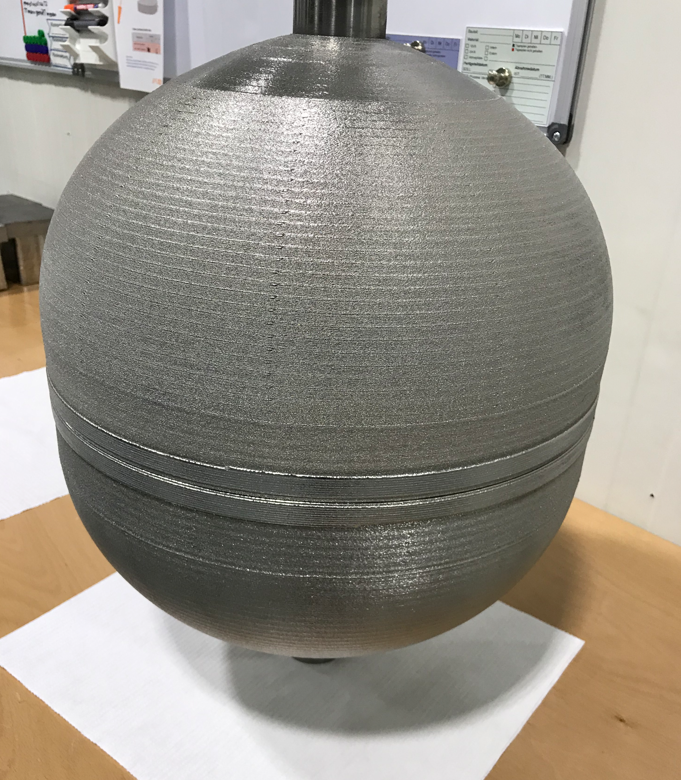French metal additive manufacturing company AddUp and German aerospace company MT Aerospace have extended their partnership on Directed Energy Deposition (DED) technology. The extension of this partnership includes the acquisition of a second Module 400 machine by MT Aerospace.
Additive manufacturing systems based on DED technology, range from Laser Metal Deposition (LMD) also known as laser cladding, blown powder DED, and trade names such as Laser Engineering Net Shape (LENS). Material, in either wire or powder form, is transformed from solid to liquid state via focused energy, for example, an electron beam, laser, or in some cases a plasma arc.
The DED print head is mounted on a gantry, much like FFF/FDM, and moves across the build chamber to deposit material. In addition to the energy source and material, the print head may also provide a shielding gas to maintain an inert atmosphere around the melt pool.
The extension of this partnership includes the acquisition of a second Module 400 machine by MT Aerospace. These two DED machines will enable MT Aerospace to multiply projects while shortening industrialization times, enabling the company to move more quickly toward series production of this technology.
For the past two years, AddUp has worked closely with MT Aerospace experts to qualify applications through the DED process. The Modulo 400 machine, which consists of a vibration powder dispenser for stability and reliability in the powder supply of the deposition nozzle, can produce parts with fine surface finishes and ideal mechanical properties. MT Aerospace says it has successfully tested it on a wide range of materials, thanks to an enclosure inerting device, which allows working with reactive powders such as titanium.

MT Aerospace and AddUp benefit their customers through their extended partnership
MT Aerospace is planning to build a comprehensive industrial platform based on DED technology in just two years, with design capabilities as well as production, post-processing, and part inspection capabilities. All of these activities, according to the company, will be later compatible with the specifications of the EN 9100 standard relevant to the aerospace sector.
With the addition of a second Modulo 400 3D printer, MT Aerospace claims it has improved its understanding of the DED process. Consequently, the company will be capable of utilizing the doubled manufacturing capacity to work in multiple directions at the same time. Firstly, in partnership with the European Space Agency, the qualifying phases for satellite fuel tanks will be accelerated, as will the development of fresh applications for satellites and micro-launchers. Secondly, this second machine will provide a chance to expand services and thus address other industries such as automotive or energy.
MT Aerospace claims it has already “succeeded in convincing several principals of interest” in the DED process and is now counting on this new AddUp machine to complement the anticipated rise in production volumes in the years ahead. AddUp is assisting this growth by allowing its consumers from Germany and beyond to benefit significantly from MT Aerospace’s expertise in incorporating the DED process.

How industrialization is scaling additive manufacturing
Previously, Multinational automotive manufacturer BMW announced the successful completion of its Digitalisation and Industrialisation of Additive Manufacturing or ‘IDAM’ project. Since its inception four years ago, BMW and its partners have established two digitally enabled automotive 3D printing production lines. These manufacturing suites, one in Bonn at material developer GKN Powder Metallurgy and the other in Munich, are capable of producing around 50,000 parts each year while functioning autonomously without the necessity for manual input.
Furthermore, Siemens opened its Charlotte Advanced Technology Collaboration Hub (CATCH) to help customers accelerate their plans for additive manufacturing industrialization. This research and development facility is located in Charlotte, North Carolina, and is led by Siemens Digital Industries, Siemens Technology, and Siemens Energy. To further industrialize 3D printing in the region, the hub will collaborate with key OEMs, end-users, and US national laboratories.
“We are excited to launch this new additive manufacturing hub and to begin inviting customers in to collaborate and find ways to accelerate the industrialization of this technology,” said Tim Bell, Additive Manufacturing Business Manager at Siemens Digital Industries. “The benefits of additive manufacturing are clear from faster time-to-market, to better design through digital prototypes, to localized manufacturing helping to reduce supply chain constraints.”
Follow this link for all the Formnext 2022 news.
To stay up to date with the latest 3D printing news, don’t forget to subscribe to the 3D Printing Industry newsletter or follow us on Twitter, or like our page on Facebook.
While you’re here, why not subscribe to our Youtube channel? Featuring discussion, debriefs, video shorts, and webinar replays.
Are you looking for a job in the additive manufacturing industry? Visit 3D Printing Jobs for a selection of roles in the industry.
Feature image shows Module 400 machine. Image via AddUp.



